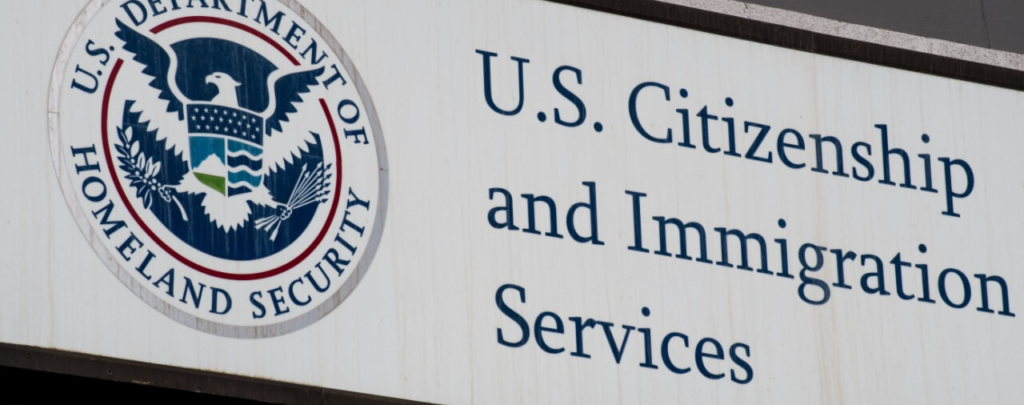Update (Feb. 13, 2018)
On January 29, 2018, the USCIS announced new affirmative asylum interview priorities. Accordingly, it ended the Affirmative Asylum Bulletin. Please see our full article on the new affirmative asylum interview priorities to learn more about the subject [see article]. In this post, you can read about the former Affirmative Asylum Bulletin and how it worked with the previous affirmative asylum interview priorities.
Introduction: Affirmative Asylum Priority Levels
On January 29, 2018, the United States Citizenship and Immigration Services (USCIS) changed how it prioritizes affirmative asylum applications for interview scheduling. The USCIS’s three current priority levels are as follows:
First priority: Applications that were scheduled for an interview, but the interview had to be rescheduled at the applicant’s request or the needs of USCIS.
Second priority: Applications that have been pending 21 days or less.
Third priority: All other pending affirmative asylum applications will be scheduled for interviews starting with newer filings and working back towards older filings.
In general, the USCIS endeavors to schedule applicants in categories one and two promptly. Applicants in the third category will have their interviews scheduled starting with the most recent applications and working back toward the longest-pending applications. We discuss this issue in more detail in our full article on the subject [see article].
Purpose of the Affirmative Asylum Scheduling Bulletin
Often, those in the third category face long wait times from the filing of an affirmative asylum application to the scheduling of an asylum interview. In order to give applicants in the third category an idea of when they may expect their asylum interview to occur, the USCIS publishes a monthly “Affirmative Asylum Scheduling Bulletin.”
How the Affirmative Asylum Scheduling Bulletin Works
Each edition of the Affirmative Asylum Scheduling Bulletin provides the average filing date of most asylum interviews scheduled during each of the previous three months at each of the USCIS’s eight asylum offices. Information is provided for each of the following asylum offices:
Arlington, Virginia;
Chicago, Illinois;
Houston, Texas;
Los Angeles, California;
Miami, Florida;
Newark, New Jersey;
New York, New York; and
San Francisco, California.
The Affirmative Asylum Scheduling Bulletin does not contain information for asylum interviews occurring outside of the eight asylum offices or in the Boston sub-office. For example, this means that the Bulletin does not include asylum interviews occurring on circuit rides. Please see our article on the asylum offices and asylum sub-offices for more detailed information [see article].
Using the Affirmative Asylum Scheduling Bulletin
A category three affirmative asylum applicant should locate the asylum office that has jurisdiction over his or her asylum application. After finding the correct asylum office, he or she will find the average filing date of the scheduled category three affirmative asylum interviews for each of the three previous months. Because interviews for category three asylum applications are scheduled in order, starting from with the longest pending cases, applicants may glean an idea of when their interview may be scheduled.
For example, the October 2016 edition of the Affirmative Asylum Scheduling Bulletin showed that in the months of July, August, and September of the same year, the asylum office in Arlington, Virginia, scheduled interviews for cases with a filing date of January 2014. By comparing his or her filing date with the most recent interview scheduling, an applicant may gain an idea of when he or she may expect an interview. An applicant under the jurisdiction of the asylum office in Arlington with a filing date of February 2014 may expect his or her interview to be scheduled in the near future. However, an applicant with a filing date of February 2015 would know that he or she still most likely faces a long wait for his or her interview to be scheduled.
Limitations and Exceptions
It is important to note that the Affirmative Asylum Scheduling Bulletin merely provides general information about things that have already occurred. While it is a useful resource for estimating when one may generally expect an interview, the Bulletin does not provide definite information on interview scheduling in the future. The USCIS explains in each news release that future movement will depend on the caseload and resources of each asylum office. For these reasons, the month-to-month forward movement in the Affirmative Asylum Scheduling Bulletin may not always be consistent.
The Bulletin does not include interviews for Form I-881, Application for Suspension of Deportation or Special Rule Cancellation of Removal cases (Pursuant to Section 203 of Public Law 105-100 (NACARA)) [see article].
Finally, the USCIS may schedule interviews expeditiously and outside of the normal prioritization levels on a case-by-case basis. An applicant may make an urgent interview request in writing to the asylum office with jurisdiction over his or her case.
Conclusion
The Affirmative Asylum Scheduling Bulletin is a useful resource for those with pending category three affirmative asylum applications. Because of the complexities of the asylum application process, it is essential for applicants to work with an experienced immigration attorney for guidance. An experienced immigration attorney will be abreast of the recent trends in interview scheduling and will be able to ensure that an asylum applicant is prepared for his or her interview. Furthermore, an experienced immigration attorney will be able to assess the applicant’s situation and determine whether the case merits an urgent interview request with the USCIS.
The Affirmative Asylum Scheduling Bulletin is posted monthly on the USCIS website. Additionally, you may find the monthly Bulletins posted here on this website.
Resources and Materials:
USCIS, Affirmative Asylum Scheduling Bulletin, (Oct. 6, 2016), available at https://www.uscis.gov/humanitarian/refugees-asylum/asylum/affirmative-asylum-scheduling-bulletin





